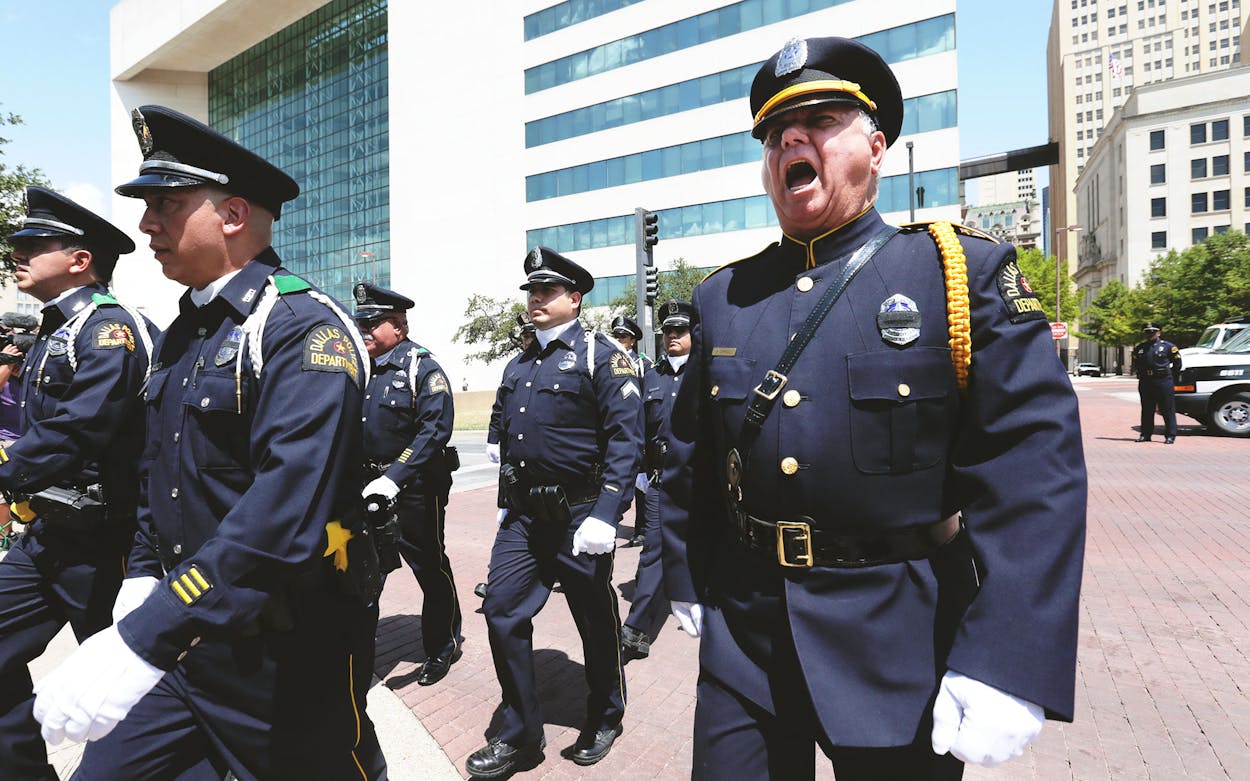Dallas has been struggling of late to recruit and retain police officers. The reasons for it seem to be manifold: other departments pay more, or offer more stable retirement plans. Police chief Renee Hall blames—you guessed it—millennials, explaining last week that “We have nights, weekends, and holidays, and those are some of the things that are not necessarily attractive to millennials who want all days off and to be the chief in six months. We recognize that is a challenge.”
Alas, disrupting the policies so that all officers have all days off and are promoted to police chief six months later appears not to be part of Hall’s millennial retention plan. However, Dallas PD has one trick for appealing to a wide range of potential employees: freedom to grow a beard.
According to D Magazine, the department quietly altered its policy regarding facial hair in November, revising it so that it now reads:
“All officers are advised General Order # 804.02 (a) 8 & 9 related to grooming standards, specifically facial hair/beards, for uniformed members shall be immediately relaxed,” the new interim policy reads. “A groomed and maintained mustache, goatee or beard is authorized. Beards must be worn with a mustache. Facial hair must not be longer than a quarter (1/4) inch in length. No portion of the beard may be exceptionally longer than the rest.”
DPD officers can grow facial hair, in other words, but don’t grow anything too unruly. (Also, “all officers” are advised, meaning that any of these ladies are welcome to apply to the force.) “Exceptionally longer” is undefined in the policy—it’s a bit of a chin-scratcher, when it’s all kept under a quarter-inch.
However, one piece of language sticks out that may trouble beard enthusiasts: namely, that “a groomed and maintained mustache, goatee, or beard is authorized,” while noting that beards must be accompanied by a mustache. This policy threatens to reignite a years-long debate, in which people who don’t know the dictionary definition of a goatee assume that it’s the kind of facial hair that Ethan Hawke had in Before Sunrise, while pedantic beardos scoff at them for not knowing the difference between a goatee and a Van Dyke.
The DPD’s policy now offers new incentives for hipsters, country boys, and women who chafe at gender conformity to consider a career in law enforcement. And while the effect on recruitment is as yet unstudied, some officers currently serving are excited at the thought that they can more stylishly serve and protect the citizens in their jurisdiction. When a similar policy went into effect in Lubbock in March, assistant chief Neal Barron described the enthusiasm with which the officers in the department embraced follicular experimentation:
“The response was almost immediate, right after the policy came out, you saw a lot of officers starting on a beard, and a lot of them have kept their beards, some have shaved,” Barron said. “And [the bearded officers] look good, they’re neatly trimmed, I think they look sharp.”
Policies vary by department, of course, and seemingly progressive police forces don’t always embrace letting officers grow the goatee of their dreams. In 2014, for example, Austin Police made headlines for instituting a temporary policy that allowed officers to grow mustaches for the month of November, provided they made a $25 donation to a testicular cancer foundation as part of its “Movember” event. Details on other policies across the state, however, remain fuzzy.








